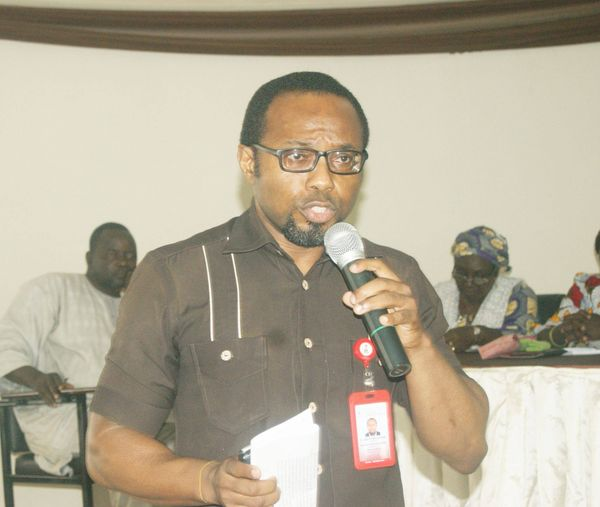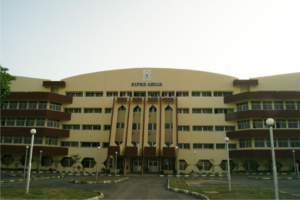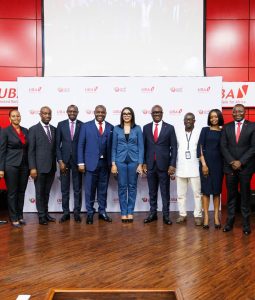
On sweltering Monday, February 1, this reporter was in Idu, a remote part of Abuja. His mission to interview Dr Obi Peter Adigwe, the director general of the National Institute for Pharmaceutical Research and Development, (NIPRED) was daunting and tasking. Locating Idu for the 5pm appointment was difficult. When from all indications the reporter appeared stranded at the Airport Road axis of Idu junction, an official informed him “you are on the wrong path”. He had to retrace his way following the directions he was given.
Idu is an industrial area of Abuja, Nigeria’s capital city. It hosts NIPRED, Pharmaceutical Council of Nigeria, manufacturing and construction concerns, yet-to-be started housing estates and projects, but it’s in a state of infrastructural neglect. It lacks access roads and electricity. In the neighborhood are bustling villages such as Karimu, Gwagwa, Shidu to far flung Dei De, Abuja’s hoi polloi towns asking for real development.
The efforts paid off as the reporter successfully located NIPRED and had a fruitful conversation with Dr. Adigwe.
Enjoy the interview.
By John Nwokocha
Sir, you have been in office for over two years from my records. What has been the challenges of the office, how have you coped and what value has NIPRED added to Nigerians’ lives?
You’re quite right that I have been in office for slightly over two years. The organization I inherited on August 20th 2018, is different from the organization you see here today. One of the key things we have issues with obviously is funding. We had poor capital appropriation in the year I was appointed. I have been able to engage the National Assembly and members of the presidency and currently our capital budget has increased more than two folds since I have been here.
The other challenge I have had, has been that when we came on board, people did not quite understand the values that NIPRED was able to bring to their lives, both stakeholders in top government positions as well as the man in the street. But we have been able to undertake an aggressive and comprehensive engagement of these stakeholders at various levels for them to understand how NIPRED’s mandates actually touch their lives.
For instance, the ground breaking work the institute was able to do on quality of hand sanitizers; the availability of hand sanitizers when COVID-19 pandemic hit the shores of Nigeria in February 2020. I am sure you are also aware of the work we did on the Madagascar and COVID organics where our analysis went viral in both English and French and as a consequence of our analysis, policy makers and scientists across the world used our findings to save countless lives and millions of dollars.
We have been able to do some work to improve our funding as well as enabling stakeholders understand the value NIPRED brings. However, despite the work we have done, there is still need for more funding by government as well as by stakeholders such as philanthropists and development partners. Also there is need for people to better understand how research and development science drive development in a country.
The federal government is expecting the arrival of vaccines soon to tackle the spread of COVID-19 infection in the country, but experts in medical science have said that Nigeria does not have the capacity to even warehouse the vaccines at the required temperature because of the type of weather we have. I also saw news regarding this on a newspaper where the government itself is crying over storage issues. How true is this?
That is not true! I’m aware that we have some cold chain capacities to store some of those vaccines but if you are talking about how many we have then, that is an issue.
As for the news in the newspaper, I would have to see what you saw before I can comment on that. But I can tell you categorically that NPHCDA has cold chain capabilities.
Like I said earlier, I don’t know to the extent but I cannot say that we don’t have; that is an incorrect statement to make.
We appreciate the fact the government has done its part in setting up this research institute, but there has been hue and cry over the vaccines by the people for diverse reasons. What is your take on this sir?
Vaccines are not the only interventions for COVID-19. They are one out of three broad categories of interventions.
Under pharmaceutical inventions you have vaccines, you have conventional medicines and then you have fighter medicines. So why are you crying over only vaccines when you can focus on developing your own?
In what areas is the institute supporting the government in tackling the COVID-19 pandemic?
Many areas. But due to paucity of time I will mention about two or three. First thing as you are aware, NIPRED pushed for and I am a statutory member of the Presidential Task Force (PTF) so we regularly provide a research and development perspective as to how the Presidential Task Force takes decisions that impact on Nigerians in the COVID-19 pandemic response that we do statutorily.
We are also a statutory member of the top management of the committee of the ministry of health and at that level we also provide value to how the articulates the response either at the ministerial level or in partnership with the Presidential Task Force. But directly as NIPRED, the several pieces of research and development activities that we have done have saved countless lives, not just in Nigeria but across Africa. So the shortages that you saw on hand sanitizers in Europe and in the Americas, you did not see those shortages when the pandemic hit the shores of Nigeria because of certain specific actions that were taken care of by the institute.
Even before the pandemic hit Nigeria, NIPRED used locally sourced materials to produce hand sanitizers.
What we additionally did was to share that formula with all interested local refactorers to ensure a wide spread availability of hand sanitizers.
Additionally, not once or twice but several times, products have come to us from top echelons of government for our analysis and advice. I have only mentioned one which is the COVID Organics which went viral and sometimes we tell government this works, or this does not work. In fact, one we reported to government was that this product is dangerous for human consumption. So this is the type of advice based on our certified laboratories that we have been able to provide categorical analysis for relevant government agencies.
But additionally, this particular product which is nipremium; is based on a widely available fighter medicine called “ando-graphics paniculather”. Close to a year ago, we were one of the firsts to predict that the particular product could have an activity against COVID-19 and we came to this conclusion based on our Artificial Intelligence and Machine Learning capability which we used to predict the potential of this particular product.
Unfortunately like I mentioned in our challenges, we did not have the requisite funding to undergo the clinical trials that will enable us categorically say how this drug can help in COVID-19 management and so other colleagues in other parts of the world who have had the requisite funding have gone ahead to now start using this particular product in managing COVID-19.
And so these are just a few examples of how specifically, NIPRED has been able to help government tackle COVID-19.
Having intervened during the meningitis breakout, would same intervention be done for Ebola virus and the COVID-19 pandemic?
We developed ‘nitripple’ for Ebola. Again, at the stage where the particular product was now meant to be taken to the next level which is the completion of pre-clinical test and clinical trials for Ebola, the funding dried up. So we are still going round and coming back to the same situation which is that people like you need to engage development partners, philanthropists and all well meaning Nigerians to support the work we do here at NIPRED so that we can use our capacity to provide solutions for diseases that plague our people.
“…but by the time I give this interview and they read it through your medium they will realize that there is an organization such as NIPRED that has this capacity and that the product that will come out from NIPRED is not only for Adigwes to use”
What do you have to say about the United Nations’ report which says that Africa is lagging behind in responding to the pandemic via the vaccines?
You cannot give what you do not have. Africa cannot give what it does not have. Africa does not have vaccine manufacturing capacity so you cannot logically, provide the type of vaccines reaction that countries who possess several vaccine manufacturing plants can do.
So, unfortunately that is where we have found ourselves. But whilst it is a sad situation, there is some succor to be had in that about four-five years ago, when the meningitis scurf broke out we spoke out to say that the Nigerian government needs to prioritize local vaccines manufacturing and based on that particular engagement the current administration put forward about 2.5 to 3 billion Naira. So I’m partnering with the local manufacturers and that led to the creation of bio vaccines.
Now that is a step in the right direction and those are the kind of interventions we now need to focus on to ensure that by the time the next pandemic comes around, we should be producing vaccines here in Africa.
You have said Africa lacks capacity. But narrowing this down to Nigeria, do we have the capacity?
I was specific; I said vaccines manufacturing capacity, not capacity in general.
Here at NIPRED we have close to 75 Masters and PhDs all aggregated in various value chains of pharmaceutical and fighting medicinal drug development and I can comfortably say that we have world class scientists here. But it is not just the scientists that make up the capacity, you need the infrastructure, you also need the equipment, you also need the policy environment. So, yes we have world class scientists but unless those other factors are also in place you cannot say you have the full capacity to produce the type of results that your peers who are in the other settings where all this factors are in place can produce.
Do you have any fear over the safety of the vaccines because Nigerians have expressed concerns regarding the safety of the vaccines in question?
That is for the Director of NAFDAC to answer.
Now sir, from your explanations, it is now very clear that lack of funding is the major challenge your organization has. Going forward, is there anything you are doing to encourage the government to support your organization?
Yes. Government is already supporting us. Part of what I’m doing to get funding from the areas where funding should be coming from but it is currently not coming from is sitting here with you in order to encourage such people to fund research in NIPRED. Because if it is engaging government I know the way to the National Assembly, I know the way to the presidency, but that chief in your village and that billionaire that lives besides you I do not know the way to their houses, but by the time I give this interview and they read it they will realize that there is an organization such as NIPRED that has this capacity and that the product that will come out from NIPRED is not only for the Adigwes to use. People of your family, people of your village and their offices will also use it when we finish the research so they will understand the importance of also supporting NIPRED, that is what is missing.
And speaking with you now at a few minutes to seven is the work I am doing in order to attract that funding.
How far can the 10 billion naira meant to fight COVID-19, in the 2021 budget go?
I have not received any 10 billion naira, so I cannot answer that question.
Prof. John Nkangasong, director of Africa Center for Diseases, said Africa is better placed to tackle COVID-19 if they collaborate rather than pursue a nationalistic approach. Do you subscribe to this?
Oh yes! I happen to be one of the most collaboration minded directors general that was ever appointed. Since my appointment slightly over two years ago I have visited close to seventy other DGs, CEOs, directors and managing directors in terms of identifying partnerships where we can collaborate. As I am speaking with you a fellow agency gave me 10 slots to train my staff in India at no cost to NIPRED. It is as a result of collaboration. As I’m speaking with you, another agency gave me infrastructure close to one billion naira for my artificial intelligence and machine learning laboratory; it is as a result of collaboration. As I am speaking with you an agency has given me laptops and Information Technology devices which I have distributed to 100 percent of my confirmed staff at no cost to NIPRED. So I cannot agree more with John Nkangasong that we need to collaborate in order to get out of where we find ourselves today.
But directly as NIPRED, the several pieces of research and development activities that we have done have saved countless lives, not just in Nigeria but across Africa.





As they say, there is no friend for the taste and color. To start making money in Space XY, you need to download the game program for android or iPhone. In the case of a personal computer, the application does not require installation: play directly from your browser. Space XY features very simple graphics that ensure it is easy to play and understand the game. It also comes with simple cosmic-themed sound and music that makes playing soothing and immersive. Virtual sports gameplay is also one of the features that is available to prepare you for the action of sports gameplay when nothing live is on. Virtual football, cricket, and horse racing game options are as thrilling. The games are pretty much run on high- end algorithms and algorithms of simulated outcomes so that they are just as unpredictable and pleasurable as real-life sports events.
https://www.siriwardanamobile.lk/2025/07/02/no-registration-play-options-in-teen-patti-gold-online-safe-or-not/
No, Teen Patti Master requires an internet connection to play. This allows you to enjoy the game with players from around the world in real-time. Teen Patti Master APK is the installation file for the Teen Patti Master game on Android devices. It allows you to manually download and install the game on your phone or tablet. Enjoying some real money thrillers, JeetGame is the online gaming platform providing an opportunity for users to win cash prizes within exciting games. JeetGame is for you if you are a casual gamer or a competitive player. Unfortunately, currently, the app offers the download to get a welcome bonus of Rs.40. Let’s now get into every detail you need to know concerning JeetGame, including how to download, register, and make the best out of it. Teen Patti Refresh – 3 Patti is a free-to-play card game from Sweet Hung Lab. This is one of the adaptations of the teen patti game, a variant of three-card brag that is popular across India and other parts of Asia. In this game, you get to join virtual tables and play different variants with fellow players from all around the world.